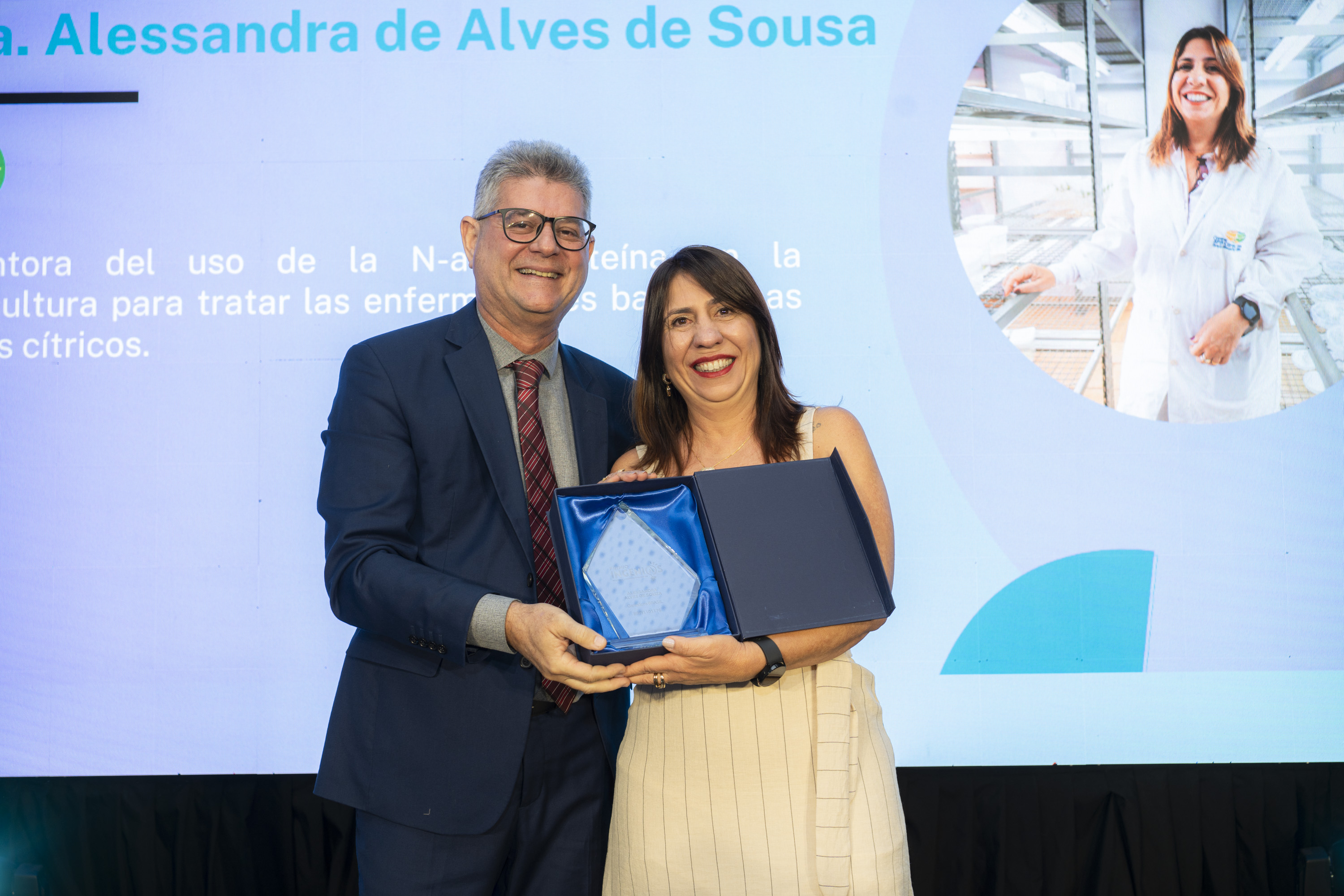Inventor of innovative technology to combat bacterial diseases in citrus plants wins Ingenias LATAM 2025 for Brazil
Researcher Dr. Alessandra Alves de Souza, a geneticist and inventor of the agricultural use of the molecule N-acetylcysteine (NAC) and its analogues, was announced as the Brazilian winner of the Ingenias LATAM 2025 award for her nationally protected invention for the treatment and prevention of bacterial diseases in citrus plants that produce fruit such as oranges, tangerines and lemons. The award is an initiative of the European Union Intellectual Property Office (EUIPO), in the framework of the EU-funded AL-INVEST Verde DPI project. Its objective is to make visible and promote female talent at in the field of intellectual property (IP) and innovation in Latin America. The award ceremony took place on 4 September at the headquarters of the Chilean National Institute of Industrial Property (INAPI) in Santiago de Chile, co-organiser and host of this first edition of the award focused on women inventors with inventions protected by IP rights.
Known molecule, innovative use
The idea that led to the Brazilian researcher's invention came about after genetically sequencing the bacterium Xylella fastidiosa and understanding how this bacterium caused disease in citrus fruits. A biologist and researcher at the IAC Agronomic Institute in the state of São Paulo, with a doctorate in molecular biology with a focus on plant-pathogen interaction, Alessandra has dedicated years to studying the bacteria that severely affect Brazilian citrus farming. Noticing the lack of effective and environmentally safe solutions to combat bacterial diseases, she decided to investigate the potential of a molecule known from human medicine - N-acetylcysteine (NAC) - as an agricultural tool.
"NAC is a well-known molecule, but nobody had thought of using it to treat plants. Our difference was having the courage to think outside the box and see what others couldn't," added Alessandra.
This is how the award-winning invention was born: an agricultural composition based on NAC, capable of inhibiting bacterial biofilms on plants, restoring sap flow and reducing the damage caused by diseases such as citrus variegated chlorosis and citrus canker. With antimicrobial and antioxidant action, the compound also helps to mitigate environmental stresses such as drought or the presence of heavy metals.
Inspiration for women
The innovation, which has already been protected with IP in Brazil and is in the process of being protected in other countries, is versatile, accessible and safe for the environment and consumers. For the Brazilian researcher, inspiring other women in science is an essential part of her career.
"We still face challenges, but showing that it is possible to get this far, being a woman, a scientist and a leader, opens up paths for others," said Alessandra.
The invention led to the creation of a start-up focused on its application in the field, and has a direct impact on Brazilian citrus farming, especially in the state of São Paulo, where the researcher lives and which is responsible for around 80 per cent of national orange production. Brazil currently leads the global orange juice market, with approximately 70 per cent of world production.
In this context, bacterial diseases represent a constant threat to the productivity and sustainability of the orchards.
"What drives me is thinking about cleaner agriculture that preserves the environment, people's health and agricultural productivity. Science can - and must - contribute to this," concluded the researcher, whose solution offers a promising scientific alternative to protect this chain that is essential to the economy and global food security.
